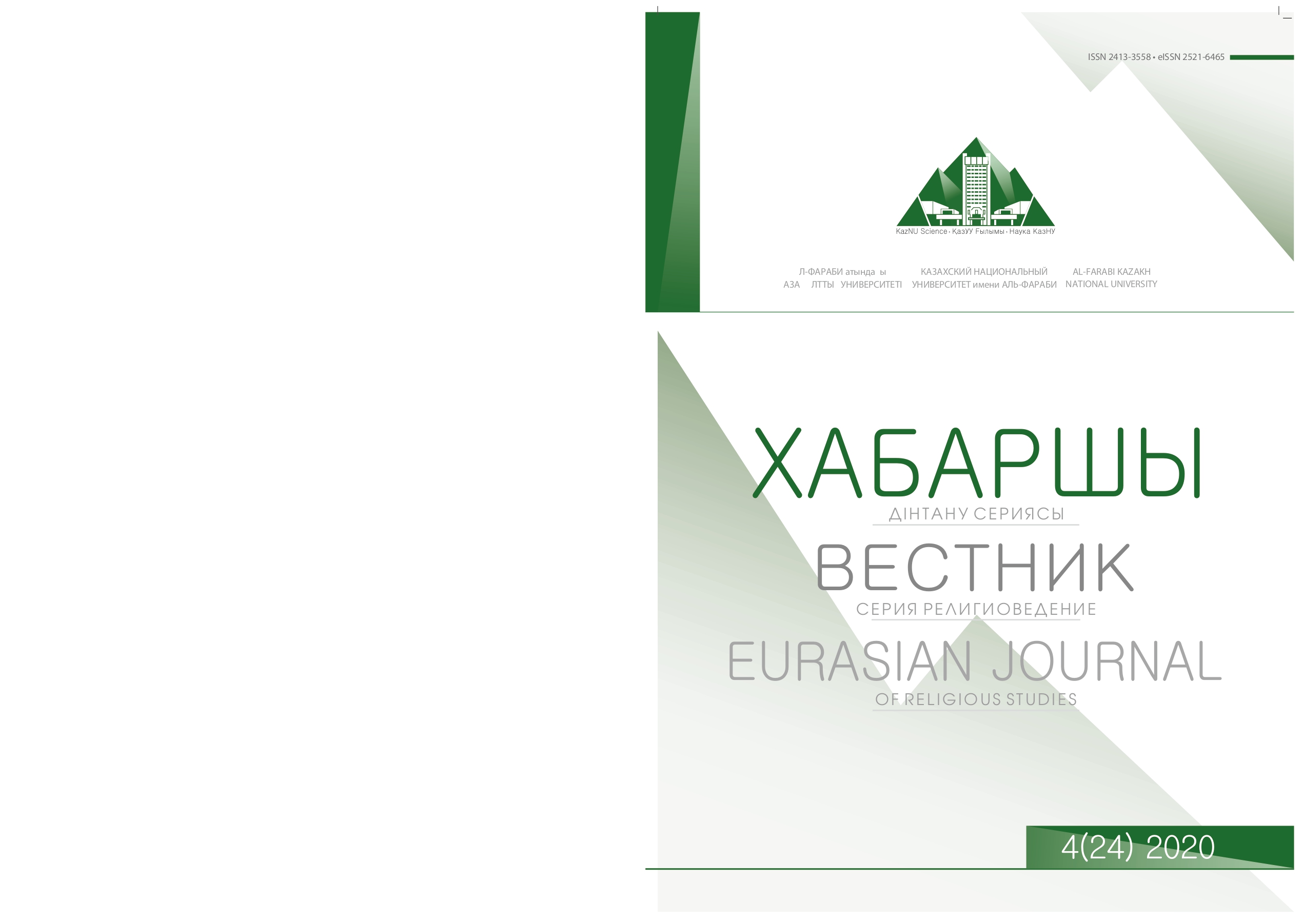Influence of global and regional conditions on the emergence of socio-cultural conflicts
DOI:
https://doi.org/10.26577/EJRS.2020.v24.i4.r3Keywords:
socio-cultural conflict, religion, tolerance, law, extremismAbstract
The article examines in detail the influence of global and regional conditions on the emergence of socio-cultural conflicts. In the era of globalization, the country's state policy in the field of religion provides for large-scale activities to preserve harmony and interethnic harmony, to form a new architecture of the world in the name of goodness and mercy, humanism and goodness. However, along with positive shifts in the field of religion, there are a number of problems. After gaining independence from the Soviet regime, a vacuum arose in the spiritual sphere, in which, along with traditional religions, non-traditional religions prevailed. In the second half of the 21st century, Kazakhstan faced the problem of religious extremism, which was hotly discussed by heads of state and prominent politicians, religious leaders at international summits, summits and confessions. As a result of the ideological foundation of the 90s of the twentieth century, various religious movements began to spread rapidly in society, especially among young people. This is due to religious illiteracy, adolescent apathy, lack of life experience, loss of place in life, disruption of the normal process of socialization, social conditions, poverty of the spiritual world, exhaustion, loneliness, seeking spiritual support, information flow, imitation, marginal phenomena in society, postmodern principles.
References
Changing youth in a changing world: a look from the inside: Collection of scientific papers of the international youth scientific and practical forum / ed. Doctor of Pedagogical Sciences, prof. S.S. Dosanova, doctor of pedagogical sciences, doctor of social sciences, prof. A.N. Teslenko. - Kokshetau: «KUAM», 2013. 259 pp.
Experts perceived Taliban's statement on Kazakhstan in different ways // http://www.rus.azattyq.org/content/ taliban_kazakhstan_afganistan_/ 24183442 html.
Jalilov Z.G. Islam and society in modern Kazakhstan. - Almaty: Daik-press, 2006. 75 p.
Karin E. Soldiers of the Caliphate: Myths and Reality. - Almaty: Publishing house Vlast, 2014. – P. 91-92.
Nurtazina N. Islam in the history of medieval Kazakhstan – http://fiimo.ucoz.kz/forum/11-65-1.
Satanovsky E. Will there be a new war in the Middle East? http:www.lenta.ru/conf/satanovskiy/(28.11.2020).
Smagulov E. The modern religious situation in Kazakhstan // Central Asia and the Caucasus. – Vol. No. 14. Issue No. 3. - 2011. - 53.
Text of speech of the official representative of the Prosecutor General’s Office Suindikov Nurdaulet // http: //www.prokuror. kz/rus/bm/ main/ briefing/? rid=4164 (Аddress date 12.03.2012).
The Law on Freedom of Religion and Religious Associations // Decree of the Supreme Council of the Kazakhstan Republic. Almaty: 1992. - №4. 7 p.
The law on religious activity and religious associations // Egemen Kazakhstan. October 14, 2011. – 3.
US and Saudi Arabia may benefit from jihadism in Kazakhstan //http://www.quorum.kz/ab/news/religiya/23112011173847/ssha_i_ saudovskoi_aravii_ mozhet_bit_vigoden_dzhihadizm_v_kazahstane.
http://rus.azattyq.mobi/a/religija-v-kazakhstane-islamskoe gosudarstvo/27366741.html.
http://www.azattyq.org/content/kazakhstan_aktobe_shooting/24281178.html.




